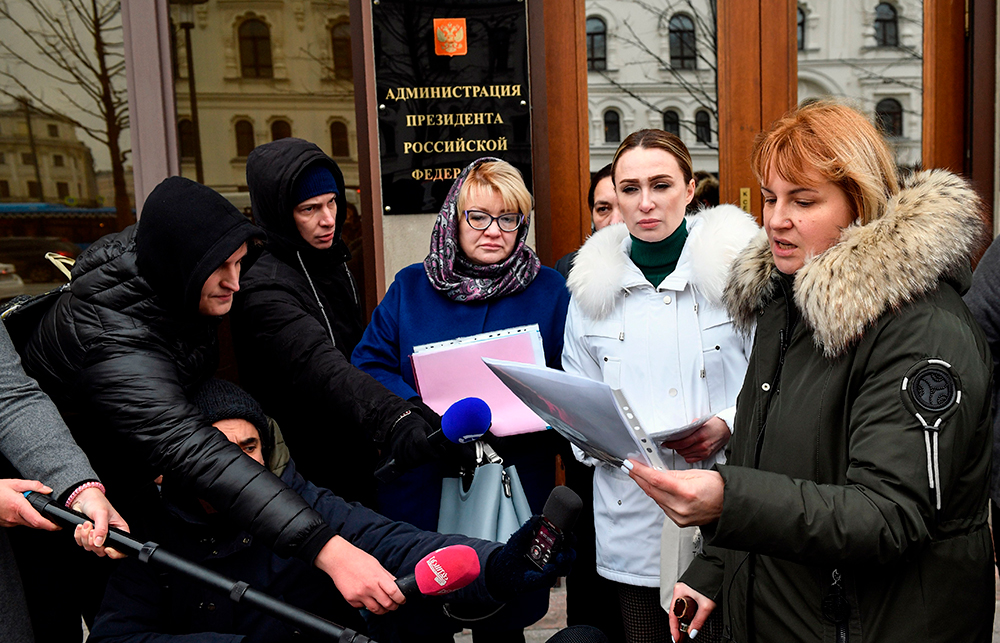The women of Voronezh are very busy these days. Across the Russian city, aunties are busy sewing boots and winter clothing. Relatives are busy crowdfunding for night goggles and drones. Wives are busy demonstrating outside military bases. Mothers are busy making preparations to travel 150 miles southwest where they will cross the border into Ukraine to find and bring home the broken bodies of their abandoned sons.
The wives and mothers of Voronezh are not alone in their efforts, or in their demands that the authorities return their underequipped and undertrained men. In neighbouring Kursk region, relatives of mobiks (men called up for mobilisation to Ukraine in September) staged a protest on the Russian–Ukrainian border. In Dagestan, women played a key role in the demonstrations that followed Vladimir Putin’s call for mobilisation. The protest only died down after the local governor promised that men without military experience would not be drafted.
Ever the self-preservationist, Putin gave governors responsibility for mobilisation efforts. This meant he could deflect blame, using local government as a shield from the inevitable backlash. His tactic has worked in some places, like Vologda in northern Russia, where mothers have been bombarding the governor with messages to bring their men home. But lately, more and more of the mothers’ calls, if not yet criticism, are starting to be directed at Putin.
Networks have developed as women try to find supplies and information to help their loved ones. Among these organisations, the Council of Soldiers’ Wives and Mothers has been especially forthright in their complaints. Imitating the Kremlin’s hyper-masculinised language, its spokeswoman accused male politicians of running scared of mothers. She even asked the President to prove he is a real man by meeting them.
The Council shares similar aims – and nomenclature – with the Committee of Soldiers’ Wives and Mothers, who traversed the mountains of the Caucasus to find their sons, dead or alive, during the Chechen Wars of the 1990s and 2000s.







Comments
Join the debate for just £1 a month
Be part of the conversation with other Spectator readers by getting your first three months for £3.
UNLOCK ACCESS Just £1 a monthAlready a subscriber? Log in